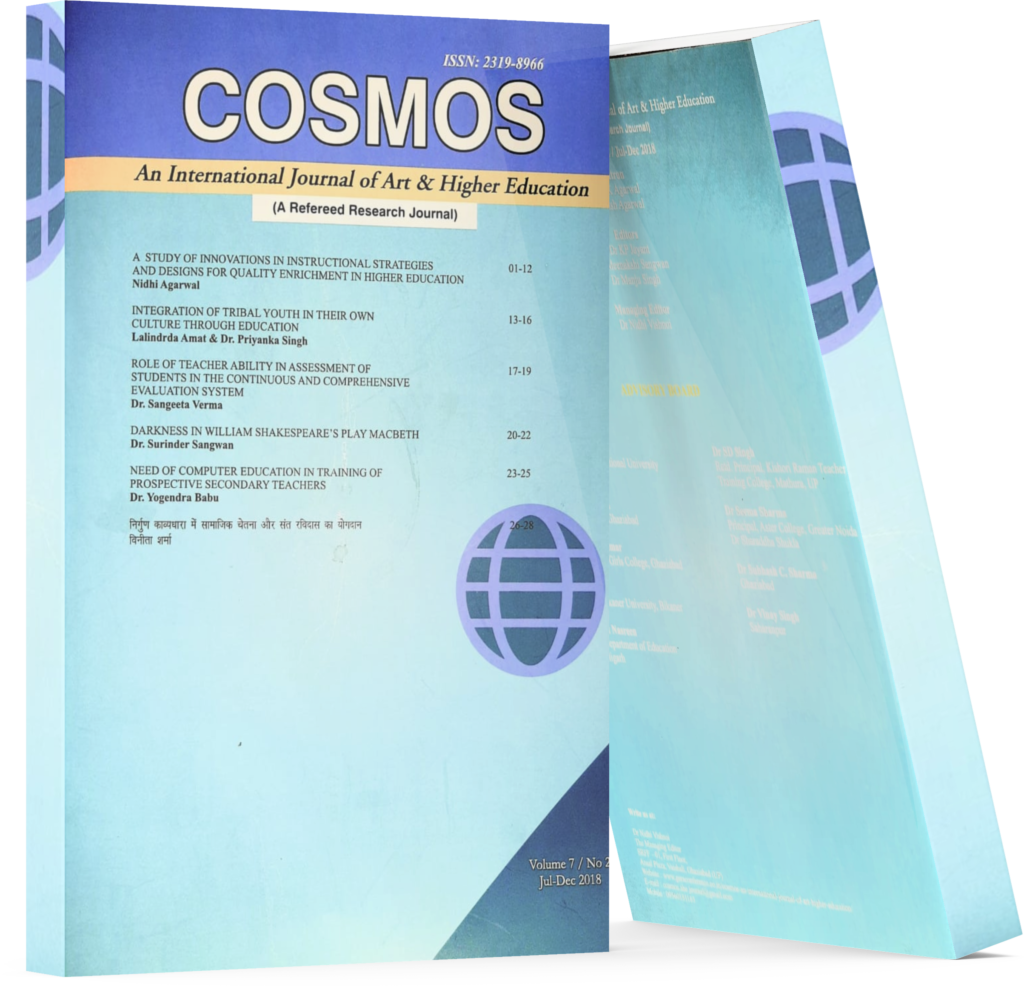Transformation In Quality Higher Education Withrespectto Blended Learning & Flipped Learning
Keywords:
Blended Learning, Flipped Classroom.Abstract
Over the years, the vast development of video technologies has been incremental rise in newe-learningpractices across all levels of the education spectrum and after COVID-19 the education was totallydependent on E-learning. While there are tons of e-learning models being tried around the globe, only twohave seemingly managed to gain as much media attention and attraction in the education industry. Blendedlearning and flipped classroom are two alternative learning pedagogies that satisfy the twenty first centuryteach-savvy learners who would prefer active participation to passive listening while learning. Traditional classroom does not suit the present day generation of students who are not interested in print text books as the sole medium of learning. Western universities offer a no. of online courses that individual students across the world can complete according to their own pace. After COVID -19 it is necessary for India alsotodevelop their E-learning.
Although the terms blended learning and flipped classroom are presented with different meanings theyactually have much in common. Blended learning is an educational strategy which combines the traditional classroom with online activities and finds its best application in flipped classroom where the responsibilityfor the teaching process is somehow transferred to that of the students who have direct access to the contents of the lessons before going to the school. This article explores the strengths and limitations of theseapproaches to teaching and learning of English as second language in the multilingual Indian context.
Downloads
References
Agarwal, Nidhi, (2018). “A study of
innovations in instructional strategies and
designs for quality enrichment in Higher
Education”, Cosmos: An International Journal
of Art & Higher Education 7(2), ISSN: 2319- 8966. 2. Agarwal, Nidhi and Jaiswal, Sushma, (2019). “A Study at organizational commitment of
educator in school”, International Journal of
Multidisciplinary Education and Research, 4(1); 39-41. doi: 10.5281/zenodo.3806468. 3. Agarwal, Nidhi and Mandal, T., (2019). “A
Study on Teacher Expertise and Schoolroom
Processes”, Globus Journal of Progressive
Education, 9(1); 7-9. ISSN: 2231-1335, doi:10.5281/zenodo.3760855. 4. Agarwal, Nidhi and Pundir, Neelam, (2019). “A Comparative Study of Personality Traits
and Thinking Styles of ICT Users and Non
Users”, International Journal of Dynamic
Educational Research Society, 1(1), 74-83. 5. Agarwal, Nidhi and Singh, Alka, (2018). “A
Study On Teaching Major Program Work With
Essential Degree”, Globus Journal of
Progressive Education, 8(1), 1-4, http://doi.org
/10.5281/zenodo.3903405. 6. Agarwal, Nidhi and Verma, Monika, (2019). “A Study on Taxonomy of Innovations”, Globus An International Journal of
Management & IT, 11(1); 57-64, ISSN: 0975- 721X, doi:10.5281/zenodo.3872090. 7. Agarwal, Nidhi; Gupta, Jayanta Das, (2018). “Impact of high school on social development”, International Journal of Advance Research and
Development, 3(4), 187-188; doi:10.5281/
zenodo.3813532. 8. Agarwal, Nidhi & Jaiswal, Sushma, (2018). “A
Study On Job Satisfaction Among Female
Teachers”, Globus An International Journal of
Management & IT, 9(2); 1380-1382, doi:
5281/zenodo.3806127. 9. Agarwal, Nidhi & Shiju P.S., (2018). “A Study
on Content Generation for Internet Usage”, International Journal of Advanced Research
and Development, 3(2); 1380-1382, doi:
5281/zenodo.3764806. 10. Chandra, G., Gupta, R. and Agarwal, N., (2020). “Role of Artificial Intelligence in
Transforming the Justice Delivery System in
COVID 19 Pandemic”, International Journal
on Emerging Technologies, 11(3); 344-350.

